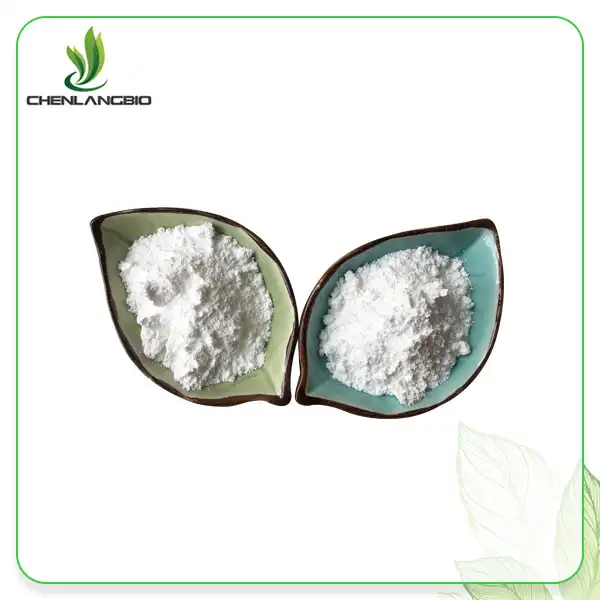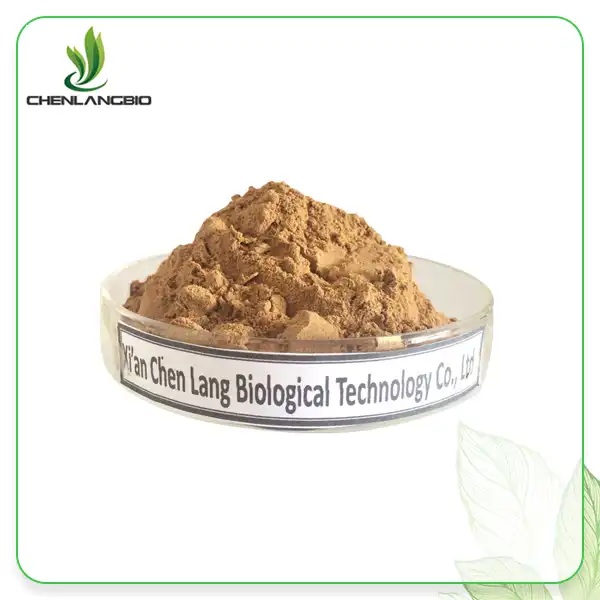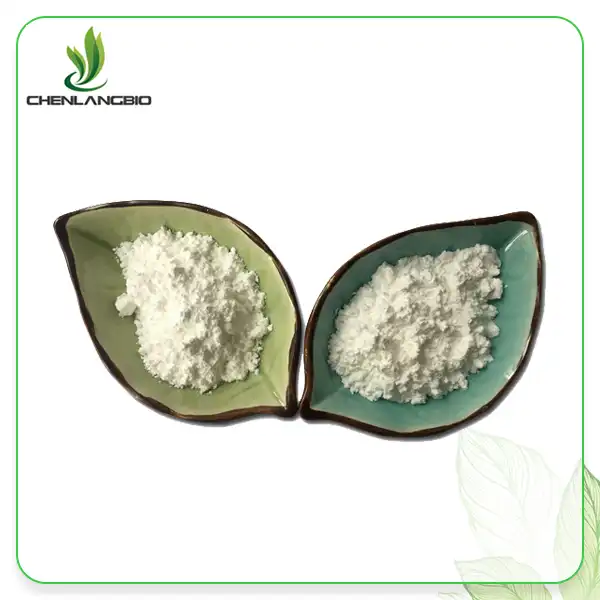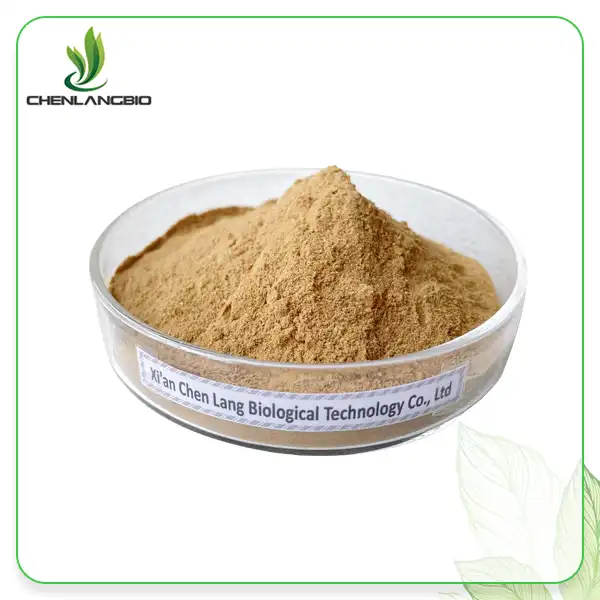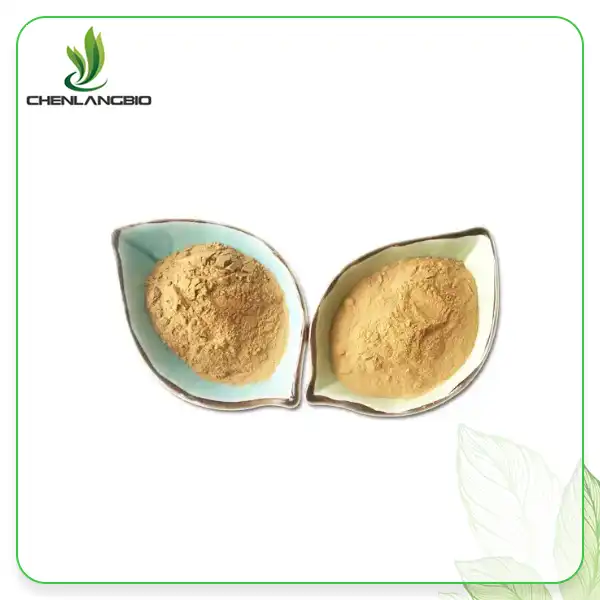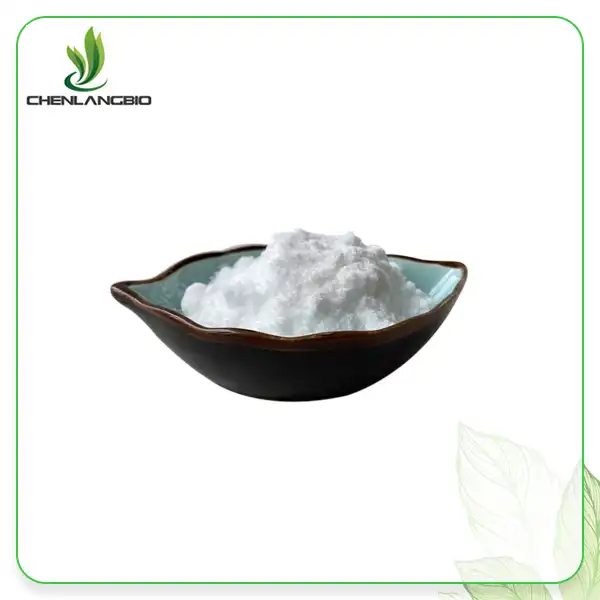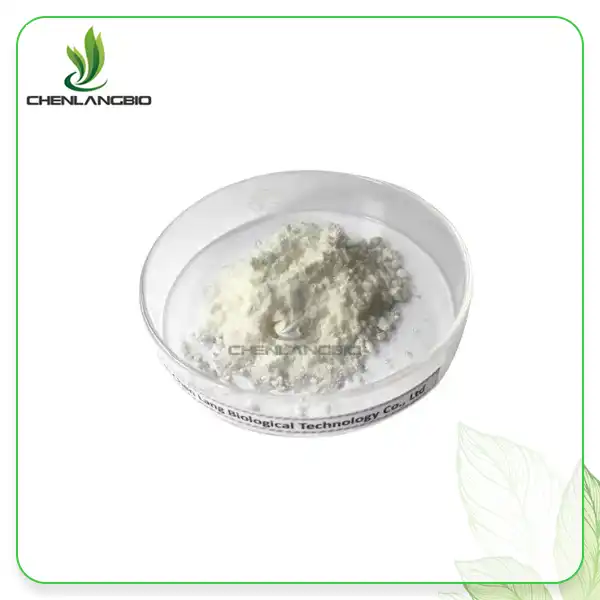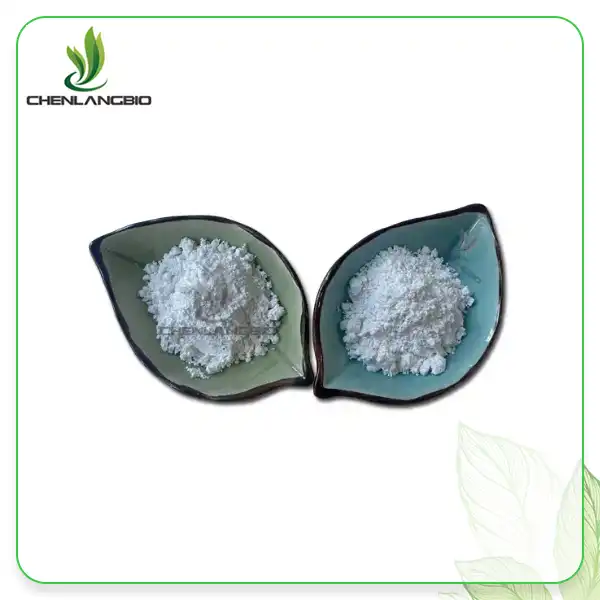Paeoniflorin 80% vs. Other Herbal Extracts: Which Is Best
2024-11-08 09:23:21
In the realm of herbal supplements, paeoniflorin 80% has emerged as a potent contender, captivating the attention of health enthusiasts and researchers alike. This powerful extract, derived from the roots of Paeonia lactiflora, boasts a myriad of potential health benefits. But how does it stack up against other popular herbal extracts? Let's delve into the world of Paeoniflorin 80% and explore its unique properties, compare it to common alternatives, and help you make an informed decision about which herbal supplement might be best suited for your needs.
Understanding Paeoniflorin 80% and Its Unique Properties
Paeoniflorin 80% is a highly concentrated form of paeoniflorin, the primary active compound found in peony roots. This monoterpene glycoside has been a cornerstone of traditional Chinese medicine for centuries, revered for its diverse therapeutic potential. The 80% concentration signifies a potent extract that maximizes the bioavailability and efficacy of paeoniflorin.
Research has unveiled a plethora of fascinating properties associated with paeoniflorin 80%:
- Anti-inflammatory prowess: Paeoniflorin exhibits remarkable anti-inflammatory effects, potentially alleviating symptoms associated with various inflammatory conditions.
- Neuroprotective capabilities: Studies suggest that paeoniflorin may shield neurons from damage and improve cognitive function, making it a promising candidate for neurodegenerative disorders.
- Antioxidant powerhouse: The compound's potent antioxidant properties combat oxidative stress, potentially slowing the aging process and reducing the risk of chronic diseases.
- Immunomodulatory effects: Paeoniflorin has demonstrated the ability to regulate immune responses, potentially benefiting those with autoimmune disorders.
- Cardiovascular support: Research indicates that paeoniflorin may improve heart health by regulating blood pressure and protecting against cardiac injury.
The concentrated nature of Paeoniflorin 80% allows for a more potent dose of these beneficial compounds, potentially enhancing its therapeutic effects. This high concentration also means that smaller doses may be required to achieve desired results, making it a convenient option for those seeking to incorporate herbal supplements into their daily routine.
Paeoniflorin vs. Common Herbal Alternatives
While Paeoniflorin 80% boasts an impressive array of potential benefits, it's essential to consider how it compares to other popular herbal extracts. Let's examine some common alternatives and their unique properties:
Ginkgo Biloba Extract
Ginkgo biloba is renowned for its cognitive-enhancing properties and potential to improve circulation. Like Paeoniflorin 80%, it possesses antioxidant and anti-inflammatory properties. However, ginkgo biloba's primary focus is on brain health and memory improvement, while Paeoniflorin 80% offers a broader spectrum of potential benefits.
Turmeric (Curcumin) Extract
Curcumin, the active compound in turmeric, is celebrated for its potent anti-inflammatory and antioxidant properties. While it shares some similarities with Paeoniflorin 80% in terms of reducing inflammation, curcumin's bioavailability can be limited without additional compounds to enhance absorption. Paeoniflorin 80%, on the other hand, may offer better bioavailability due to its concentrated form.
Echinacea Extract
Echinacea is primarily known for its immune-boosting properties and potential to reduce the severity and duration of colds. While both Echinacea and Paeoniflorin 80% have immunomodulatory effects, Paeoniflorin offers a wider range of potential benefits beyond immune support.
Rhodiola Rosea Extract
Rhodiola rosea is an adaptogenic herb that helps the body cope with stress and fatigue. While it shares some neuroprotective properties with Paeoniflorin 80%, the latter offers additional benefits in terms of anti-inflammatory and cardiovascular support.
Milk Thistle Extract
Milk thistle is primarily used for its liver-protective properties. While it possesses antioxidant qualities similar to Paeoniflorin 80%, its benefits are more focused on liver health. Paeoniflorin 80% offers a broader range of potential applications across various body systems.
When comparing Paeoniflorin 80% to these alternatives, it's clear that while each herbal extract has its unique strengths, Paeoniflorin 80% stands out for its versatility and concentrated form. Its potential to address multiple health concerns simultaneously makes it an intriguing option for those seeking a comprehensive herbal supplement.
Choosing the Right Herbal Supplement for Your Needs
Selecting the most suitable herbal supplement requires careful consideration of your individual health goals and needs. Here are some factors to ponder when deciding between Paeoniflorin 80% and other herbal extracts:
Identify Your Primary Health Concerns
Begin by pinpointing the specific health issues you wish to address. If you're seeking a supplement with broad-spectrum benefits that may support multiple aspects of your health, Paeoniflorin 80% could be an excellent choice. However, if you have a more targeted concern, such as improving memory or boosting immune function, you might consider alternatives like Ginkgo biloba or Echinacea, respectively.
Consider Potential Interactions
It's crucial to be aware of potential interactions between herbal supplements and any medications you may be taking. Consult with a healthcare professional before adding any new supplement to your regimen, especially if you have existing health conditions or are taking prescription medications.
Evaluate the Quality and Concentration
The potency and purity of herbal extracts can vary significantly between products and manufacturers. Paeoniflorin 80% offers a high concentration of its active compound, which may translate to more pronounced effects. When considering other herbal extracts, look for standardized products that specify the concentration of active ingredients.
Assess Your Budget
While the cost shouldn't be the sole determining factor, it's important to consider the long-term affordability of your chosen supplement. Paeoniflorin 80%, being a concentrated extract, may offer good value for money as smaller doses may be required. Compare this with the recommended dosages and prices of alternative supplements to determine the most cost-effective option for your needs.
Research Scientific Evidence
Explore the available scientific research supporting the use of different herbal extracts for your specific health concerns. While traditional use provides valuable insights, modern scientific studies can offer additional validation. Paeoniflorin 80% has been the subject of numerous studies, but it's worth comparing the depth and breadth of research available for alternative supplements as well.
Consider Synergistic Effects
Some herbal extracts may work synergistically with other supplements or dietary changes. For instance, the anti-inflammatory properties of Paeoniflorin 80% might complement an anti-inflammatory diet. Consider how your chosen supplement fits into your overall health and wellness strategy.
Listen to Your Body
Ultimately, the effectiveness of any supplement can vary from person to person. Pay attention to how your body responds to the chosen supplement. If you don't notice any benefits after a reasonable period, or if you experience any adverse effects, it may be time to reevaluate your choice.
Conclusion
In conclusion, while paeoniflorin 80% offers a compelling array of potential benefits and a high concentration of active compounds, the "best" herbal extract is ultimately the one that aligns most closely with your individual health needs and goals. By carefully considering the factors outlined above and consulting with healthcare professionals, you can make an informed decision about whether Paeoniflorin 80% or another herbal extract is the right choice for you.
Remember, herbal supplements should complement, not replace, a healthy lifestyle that includes a balanced diet, regular exercise, and adequate sleep. By taking a holistic approach to your health and wellness, you can maximize the potential benefits of your chosen herbal supplements and work towards achieving optimal well-being. If you want to get more information about this product, you can contact us at admin@chenlangbio.com.
References
1. Zhang, L., et al. (2019). "Paeoniflorin: A Comprehensive Review of Its Pharmacology, Bioactivity, and Clinical Applications." Frontiers in Pharmacology, 10: 1449.
2. Chen, Y., et al. (2020). "The Neuroprotective Effects of Paeoniflorin: A Review." Phytotherapy Research, 34(7): 1560-1574.
3. Wang, K., et al. (2018). "Paeoniflorin and Albiflorin Attenuate Neuropathic Pain via MAPK Pathway in Chronic Constriction Injury Rats." Evidence-Based Complementary and Alternative Medicine, 2018: 8957219.
4. Jiang, Z., et al. (2020). "Paeoniflorin: A Monomer from Traditional Chinese Medical Herb as a Novel Therapeutic Agent for Rheumatoid Arthritis." Frontiers in Pharmacology, 11: 261.
5. Zhou, Y., et al. (2021). "Paeoniflorin Ameliorates Collagen-Induced Arthritis via Suppressing Nuclear Factor-κB Signaling Pathway." Immunopharmacology and Immunotoxicology, 43(1): 97-105.
6. Li, X., et al. (2018). "Paeoniflorin Ameliorates Scopolamine-Induced Cognitive Impairment via Inhibiting Acetylcholinesterase and Attenuating Oxidative Stress." Frontiers in Pharmacology, 9: 1205.
Send Inquiry
Related Industry Knowledge
- Fucoidan Powder Growth: Why Demand Is Rising Now
- Tart Cherry Extract Powder: A Wellness Essential
- How Does Kopexil Compare to Minoxidil?
- Pro-xylane Powder: Benefits for Skin Care
- Who Should Avoid Hops
- Why Pure Fisetin Is the Antioxidant You Need
- What is An Alternative to Monobenzone
- What is 4-Hexylresorcinol Used for
- Can Diabetic Person Take Natural Stevia Extract Powder
- What is Sex Powder



